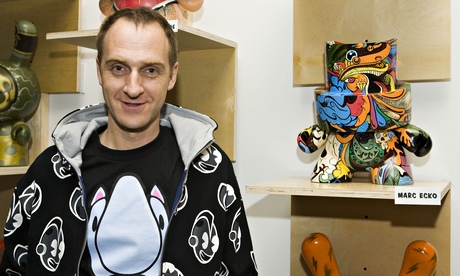
The internet can seem like a winner-takes-all game – which you win when your brand becomes a verb. There is only one search engine, one auction site, one encyclopedia… and one social network. Since Facebook shrugged off Bebo and Myspace, it has had few direct competitors. Twitter succeeded with a slightly different model, but few have challenged Mark Zuckerberg’s colossus head-on.
The latest wannabe to break the surface is Ello, a network founded on an almost explicitly anti-Facebook ticket. “Ello is a simple, beautiful and ad-free social network,” reads its manifesto. “Ello doesn’t sell ads. Nor do we sell data about you to third parties.” Founded by some design-minded Americans, led by Paul Budnitz, Ello has been around since the spring but only started gathering column inches in the past fortnight. Global interest was prompted by some consternated Californian drag queens, who were fed up that Facebook insisted on using their real names. They migrated to Ello and the resulting publicity led to a spiral of interest in the site. At one point, 35,000 people were signing up every hour.
Enthused by all this, I spent most of the last week trying to get myself on (part of Ello’s burst of attention has been fuelled by its invitation-only membership). In the end, a plaintive request (through another social network, naturally) secured one. After an initial rush when the digital red velvet rope was pulled aside, however, the experience was underwhelming. The site’s design is simplistic to a fault, mainly in monochrome – it looks a bit like a posh Twitter – but it is difficult to navigate. The other users seem mainly to be men with beards. I feel the urge to give up on Facebook, too, but it is hard to see how Ello presents the solution.
Social networks are inertia-led – the more effort you put into establishing one, the more rewarding an experience it is. Facebook has spent billions upon billions of dollars to make itself as user-friendly as possible. It’s hard to see how a new site can catch up, even with the best ethical intentions.
I wasn’t alone in my disappointment. “I came to Ello as part of the queer exodus from Facebook (where drag queens lead, I follow),” says writer Olivia Laing. “I felt very smug about having an early invite and then couldn’t work out how to use the search function. Horrible design, not elegant at all. Within an hour, I’d realised how insane it was to join another social network. I’m always trying to cut down on time on Twitter and I want to spend more time talking, not typing.”
Perhaps the most interesting thing about Ello’s emergence has been how little time it has taken for people to be rude about it. If you can’t be an early adopter, be an early denigrator. Criticisms emerged about how private it really was and bugs in the system. The founders admitted to being surprised by the level of interest and were at pains to explain it was still in beta-testing and far from the finished product.
It is also unclear how the site will make money. “Ello say they will sell premium content,” says the tech writer Jeff Jarvis. “But we’ve heard that one before. They don’t have a business model, so why would anyone invest in them?”
Mark Zuckerberg does not yet need to be looking over his shoulder, he adds. “I’m very suspicious of things that are talked about as ‘killers’,” he says. “Google-killers, Uber-killers. I don’t think it’s a very creative way to go about the technology business. Also, Ello is going after Facebook as a social network, which is fine, but there’s a reason Zuckerberg has been buying WhatsApp and Instagram. In his own words, he is trying to “break up the big blue app”. Facebook is trying to connect people in multiple ways. While Ello goes after Facebook 1.0, Facebook is on version 4.0, thinking about new things.”
The omnipresence that users find frustrating about Facebook, he adds, remains one of its core strengths. “The Ello story is also partly about this view, particularly in Europe, that companies such as Google and Facebook can get too big. So people say, ‘Let’s do the new Facebook’. But they miss the point of critical mass. A company such as Ello might do it, but it’s an awfully big mountain to climb to create a network that all your friends are on.”

